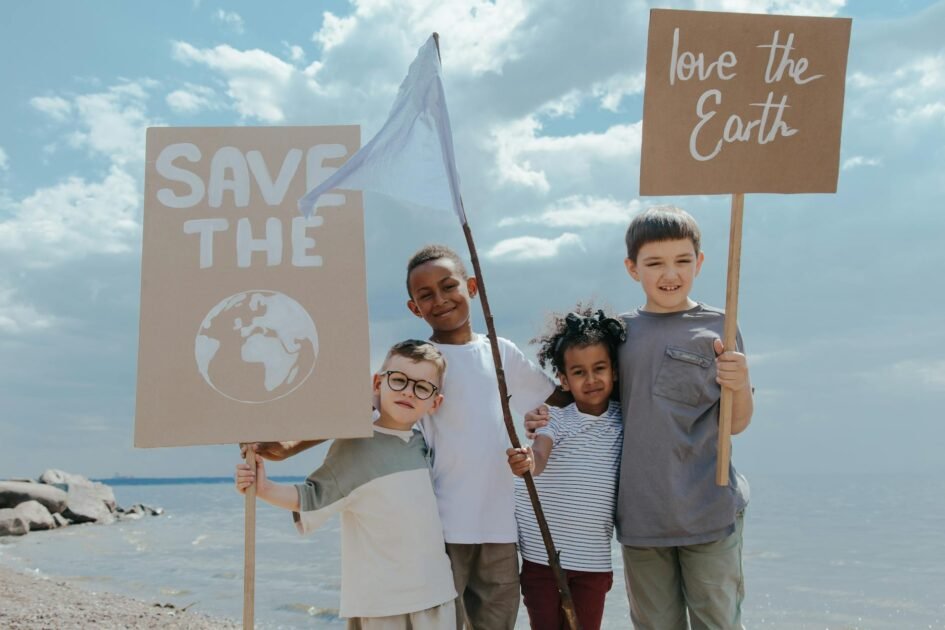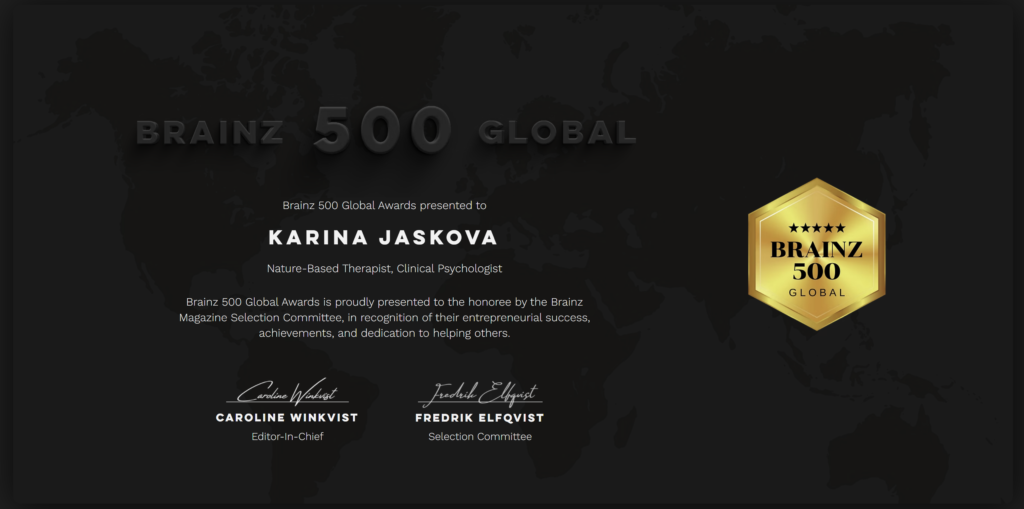Support Nature
I wholeheartedly believe in the profound connection between human well-being and the health of our Earth. That’s why it’s crucial to support various projects and initiatives aimed at caring for our planet.
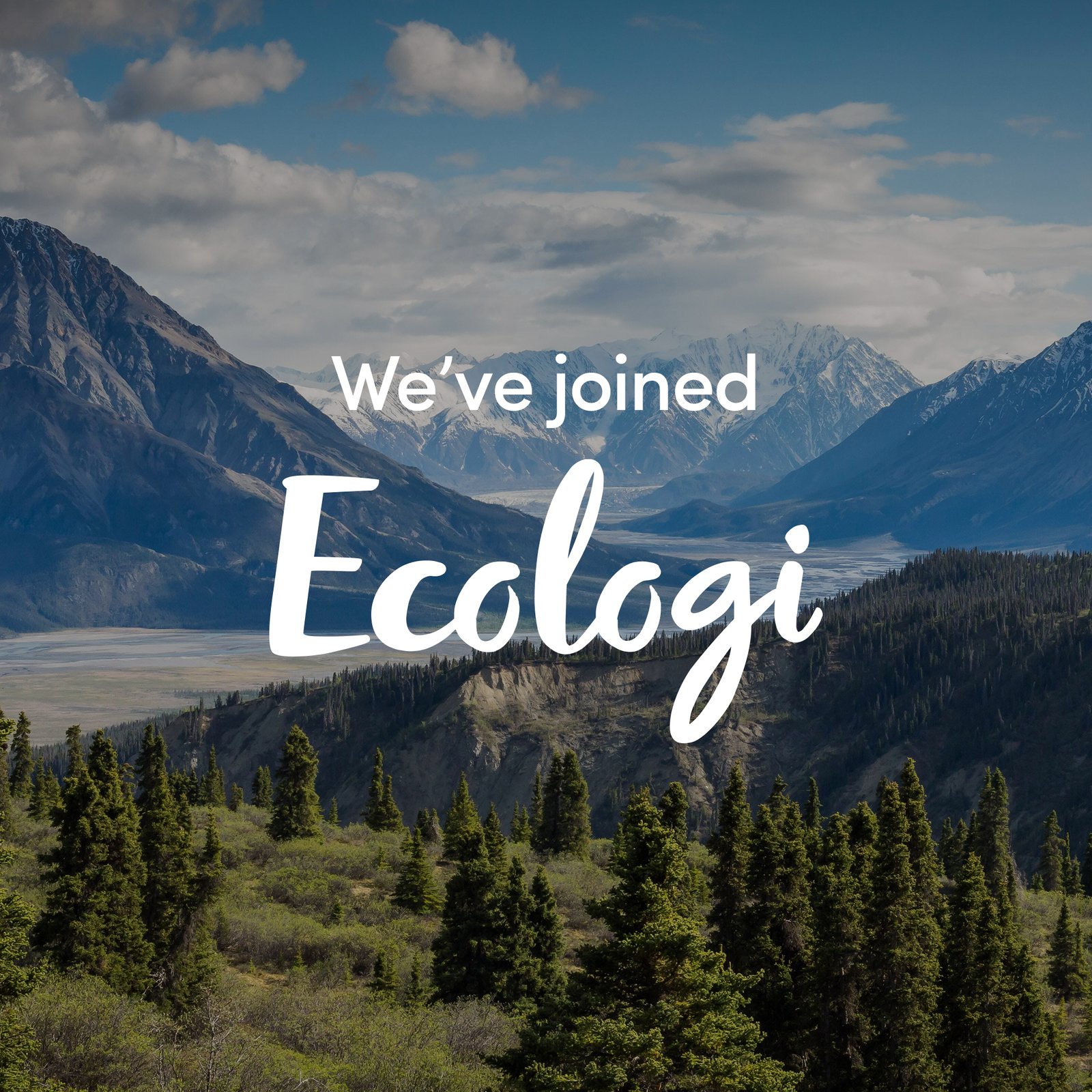
On Earth Day, April 22, 2024, Whisper of the Earth embarked on a new journey by supporting Ecologi.com, marking a significant stride in our commitment to environmental stewardship. Here, I channel my dedication into actively participating in a diverse range of global sustainability and restoration projects, inspiring you to join these efforts.
By joining me in these endeavors, you not only contribute to vital environmental work but also embark on a journey of personal and communal healing. Dive into the projects listed below to see how your involvement can make a tangible difference in both the world around us and the world within us.
Over time, I will continue to add different initiatives that Whisper of the Earth supports and collaborates with.
The diverse projects supported by Whisper of the Earth
1. Ecologi’s funded projects on tree planting, carbon avoidance and removal and habitat restoration
Founded in 2019, Ecologi began as a subscription service for individuals and has quickly grown into a vibrant community, including over 19,000 businesses and 40,000 members. The organization is on a mission to motivate small and medium-sized enterprises (SMEs) to embark on their climate action journeys, providing the necessary tools, information, and advice to help them achieve net-zero emissions.
Ecologi funds projects across the world to plant trees in areas where they have been lost, helping the habitats to recover, restoring biodiversity, supporting local communities, and sucking in CO2 from the atmosphere. Some of the projects supported by Whisper of the Earth:
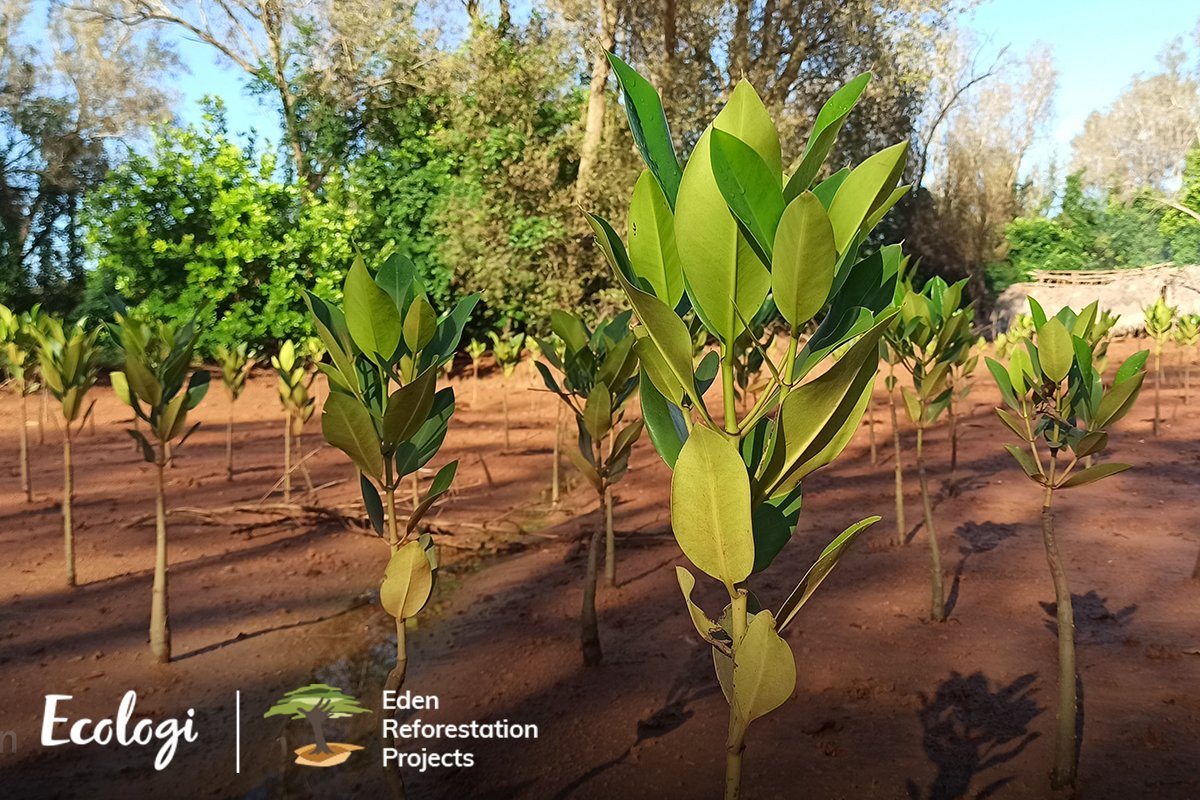
Mangrove planting at Kandrany, Madagascar. Madagascar, known for its rich biodiversity, faces significant environmental challenges due to deforestation and habitat loss. Mangrove forests, vital coastal ecosystems, have been particularly impacted, leading to the displacement of wildlife and increased coastal erosion. Mangroves play a crucial role in carbon sequestration, absorbing and storing carbon in their root systems, while also providing essential habitats for marine species and protection against coastal erosion and storms. Discover further details about this significant initiative: Link to the project
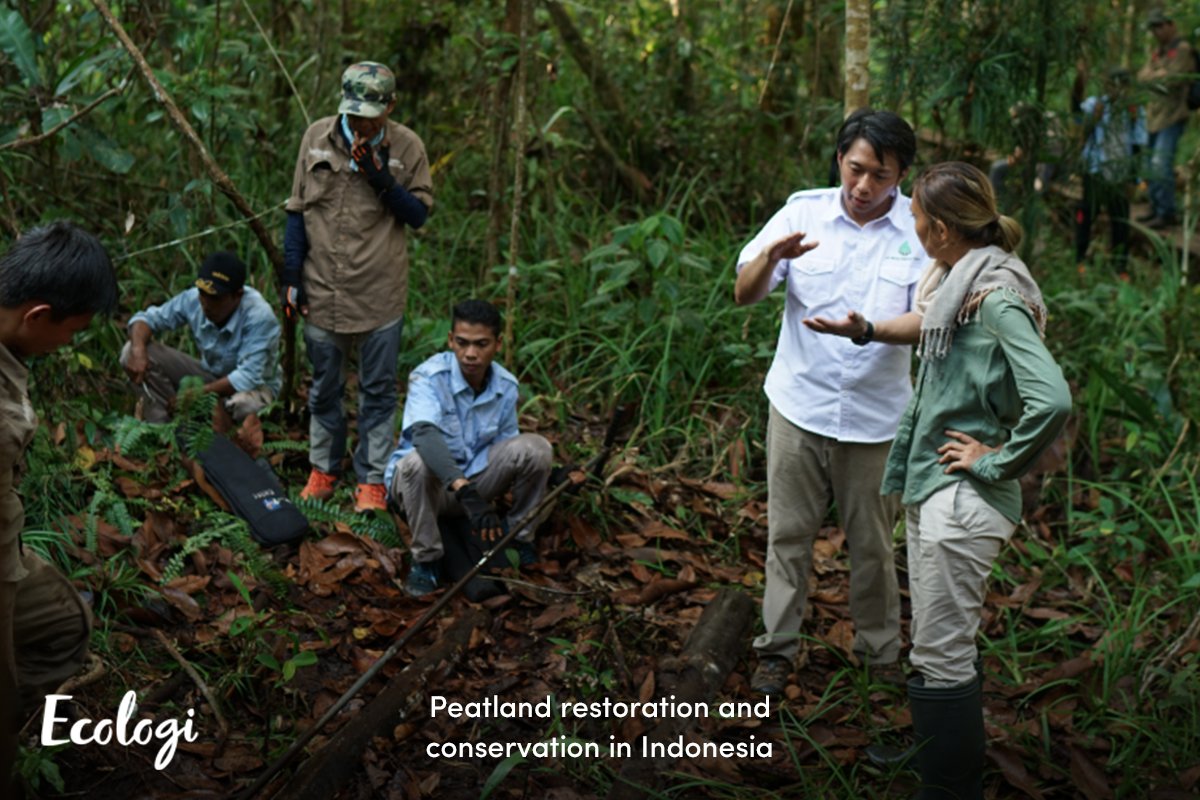
Peatland restoration and conservation in Indonesia. Peatlands, among the Earth’s most valuable ecosystems, store massive amounts of carbon and support rich biodiversity. However, these vital habitats are under threat from deforestation and drainage, particularly in Indonesia, which hosts 36% of the world’s tropical peatlands.
The Katingan Restoration and Conservation Project, situated in the Central Kalimantan Province of Indonesian Borneo, aims to protect and restore 149,800 hectares of peatland ecosystem. Using high-resolution satellite imagery, the project monitors and protects existing peatland forests from degradation and deforestation, swiftly intervening to prevent further loss. To combat the risk of fires on drained peatlands, the project employs a sophisticated system, including trained community firefighters, drones, and satellite monitoring.
Additionally, fire-resistant tree species are planted to safeguard the area against potential wildfires. Furthermore, the project focuses on restoring degraded areas through peatland rewetting activities, such as canal blocking and deep well construction. These efforts not only protect carbon stores but also preserve biodiversity, including critical habitats for endangered species like the Bornean orangutan. Moreover, the project prioritizes the well-being of local communities, with initiatives such as micro-finance loans for female-led businesses, youth job training, and health education. By integrating conservation efforts with community development, the project strives for holistic sustainability and resilience. Engage in supporting this crucial initiative: Link to the project
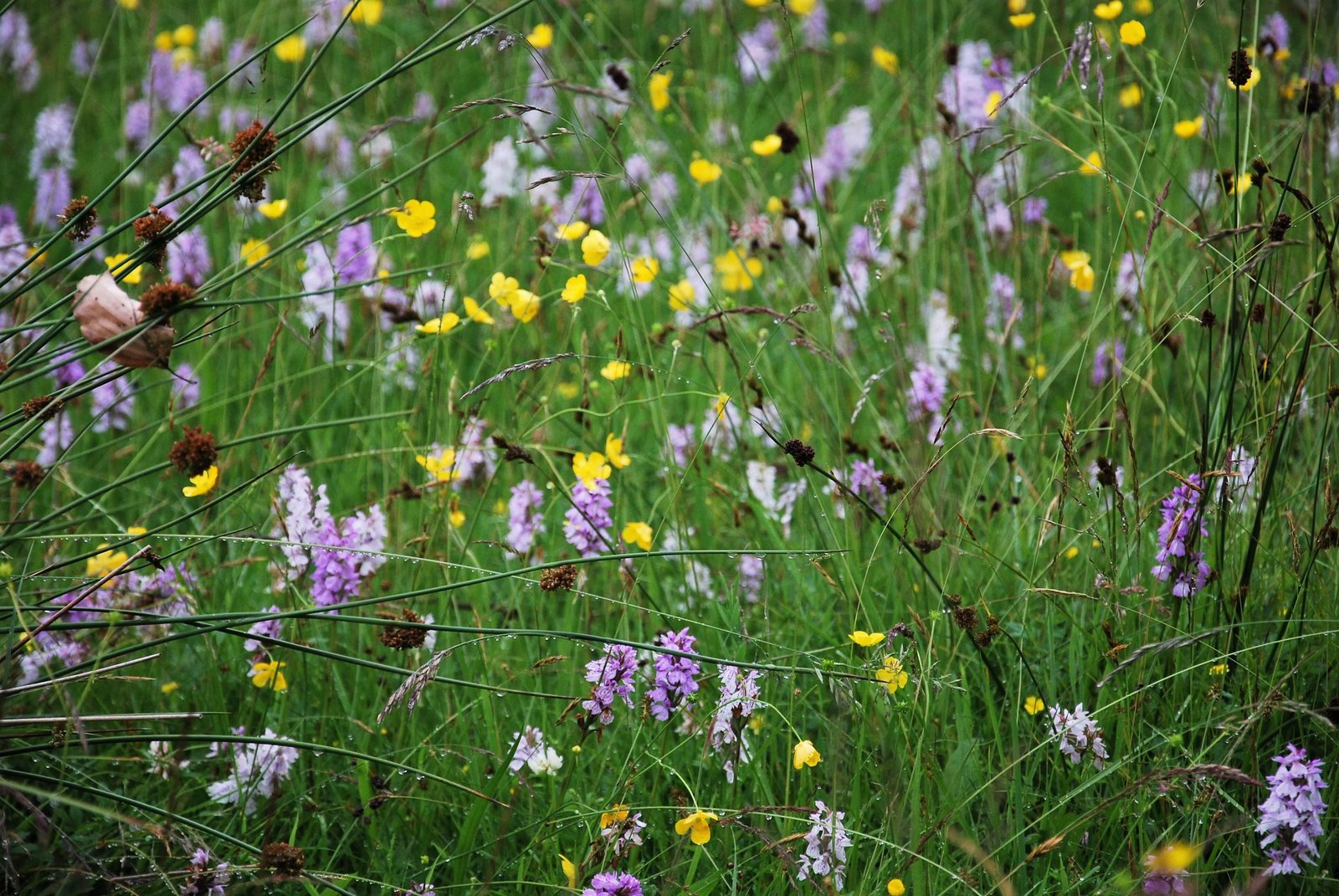
Restoring Wildflowers, Wetlands and Wildlife, UK. In the UK, wildflower meadows and wetlands have faced significant declines, with 97% of wildflower meadows lost since the 1930s and the degradation of wetland habitats. This project focuses on creating and restoring these crucial habitats to support a diverse array of plant and animal species. Through initiatives like sowing locally sourced wildflower seeds and restoring marshy grasslands with native plant species, essential habitats for pollinators like bees and butterflies are provided. Additionally, these efforts benefit rare wildlife such as the Northern Brown Argus butterfly.
Peatlands and ponds are vital habitats for various species, yet they’ve experienced substantial losses due to drainage and afforestation. The project prioritizes large-scale peatland restoration and pond creation to provide crucial habitat for birds, mammals, amphibians, and aquatic life. Supporting initiatives to restore drained peatlands and remove invasive species aims to revive these habitats and aid in the recovery of species like cranberry and bog-building Sphagnum mosses. Furthermore, the creation of ponds serves as essential breeding grounds for species such as otters, great crested newts, and curlews.
Ancient woodlands are invaluable habitats for native wildlife, but they’re threatened by invasive species and habitat degradation. This project actively supports the protection and enhancement of ancient woodlands, safeguarding species like bats, lichens, fungi, and red squirrels. Through initiatives like invasive species removal, protection of mature woodlands, and native tree planting, efforts are made to conserve these vital habitats and promote biodiversity.
These restoration efforts not only enhance biodiversity but also contribute to carbon sequestration and climate mitigation. By supporting initiatives to protect and enhance habitats like peatlands and forests, carbon is stored in vegetation and soils, mitigating greenhouse gas emissions. Moreover, by fostering resilient ecosystems and aiding vulnerable species, this project plays a crucial role in preserving the UK’s natural heritage for future generations. Join in supporting the restoration and conservation of vital habitats: Link to the project
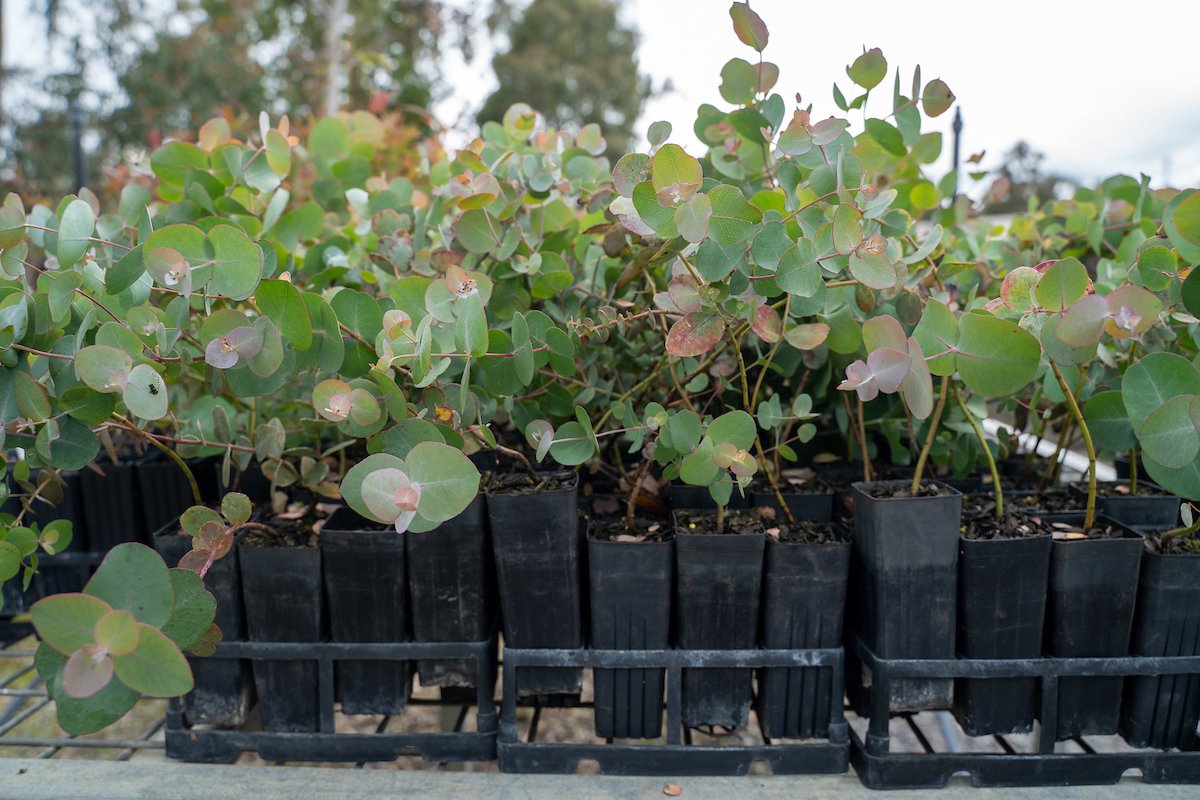
Reforestation projects in Australia. Australia has 134 million hectares of forest, equivalent to 17% of its land area and 3% of the world’s total forests. Of this, 132 million hectares are native forest, ranging from ancient Gondwana Rainforests and tropical mangroves to extensive bushlands that consist of native acacia, eucalyptus and melaleuca trees. These forests are unique and varied, however they are under increasing threat of destruction. The combination of low precipitation and record high temperatures during Australia’s 2019-20 summer season resulted in dramatic wildfires that drew global attention. These fires burned 21% of temperate broadleaf and mixed forest, compared to an average of 2% in a normal bushfire season. In addition to forests and vegetation being lost, over 1 billion animal casualties occured, for example, an estimated 60,000 koalas were killed, injured or affected in some way. Reforestation is essential in recovering lost species populations, as well as rebuilding their habitat.
The tree-planting projects include bushfire recovery nurseries, creating habitat corridors for koalas in New South Wales and Victoria, enhancing biodiversity in Western Australia, and promoting sustainable and regenerative agricultural practices with landowners. Efforts are focused on mobilising support for replanting efforts, developing nurseries and planting millions of trees. Engage in supporting this initiative: Link to the project
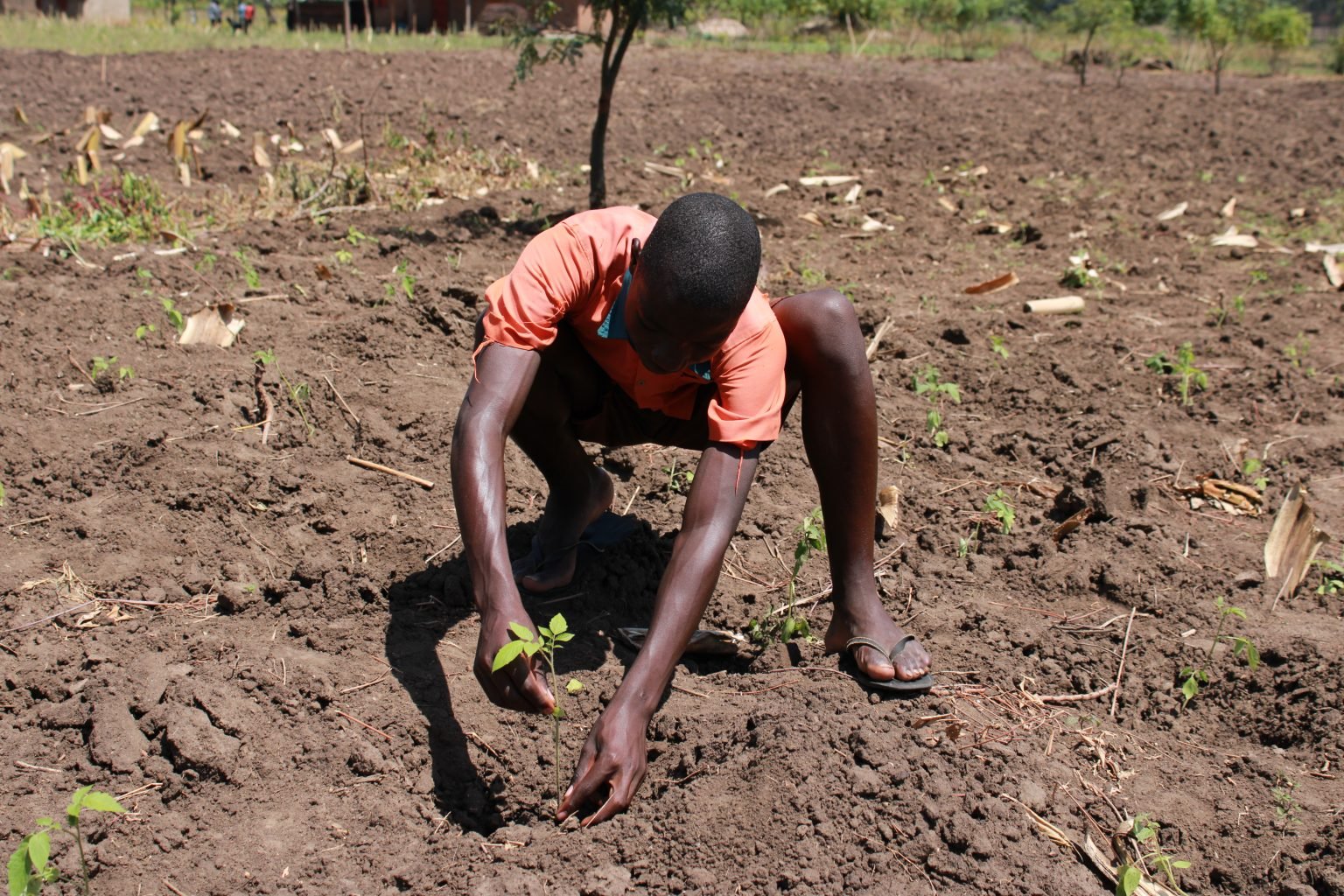
Planting forest gardens in Uganda. Uganda is a landlocked country in East Africa, on the shores of Lake Victoria. It has a population of over 45 million, over 20% of whom live in the vicinity of the capital, Kampala. The population of Uganda has exploded from around 5 million in 1950, and remains relatively very young – with just under 70% of the population under the age of 25. The area surrounding Mount Elgon in the Eastern part of the country is heavily degraded due to deforestation and over-cultivation. The relatively high population in the area puts a strain on the land, leaving it almost bare, due to degradation from animal grazing, tree-cutting for fuel wood, and heavy mono-cropping of specific crops like bananas and coffee. The degraded land has also led to deadly landslides in the area which pose an acute safety risk to the nearby populations. This land degradation arises as a direct clash between existing, damaging farming practices like monocultures (which exist often because they were historically imposed on the areas by colonial powers), and the wellbeing and needs of the local people and ecosystems.
This project involves the establishment of 400 Forest Gardens in the Mount Elgon region in Eastern Uganda. Each Forest Gardens is approximately one hectare each in size, and local farmers are supported and trained to establish and look after their Forest Gardens over a period of 4 years. By the end of the 4-year programme, farmers have an established and protected Forest Garden which they can use to sustain their families and produce vital income. All the while, the diverse trees planted in the 400 Forest Gardens in the project will provide ecosystem services, like stabilising the soil, and of course will be sequestering carbon from the atmosphere and storing it in the ground. Explore more about this project: Link to the projects
You can learn about all projects supported by Whisper of the Earth here
2. World Wildlife Fund’s (WWF) conservation projects
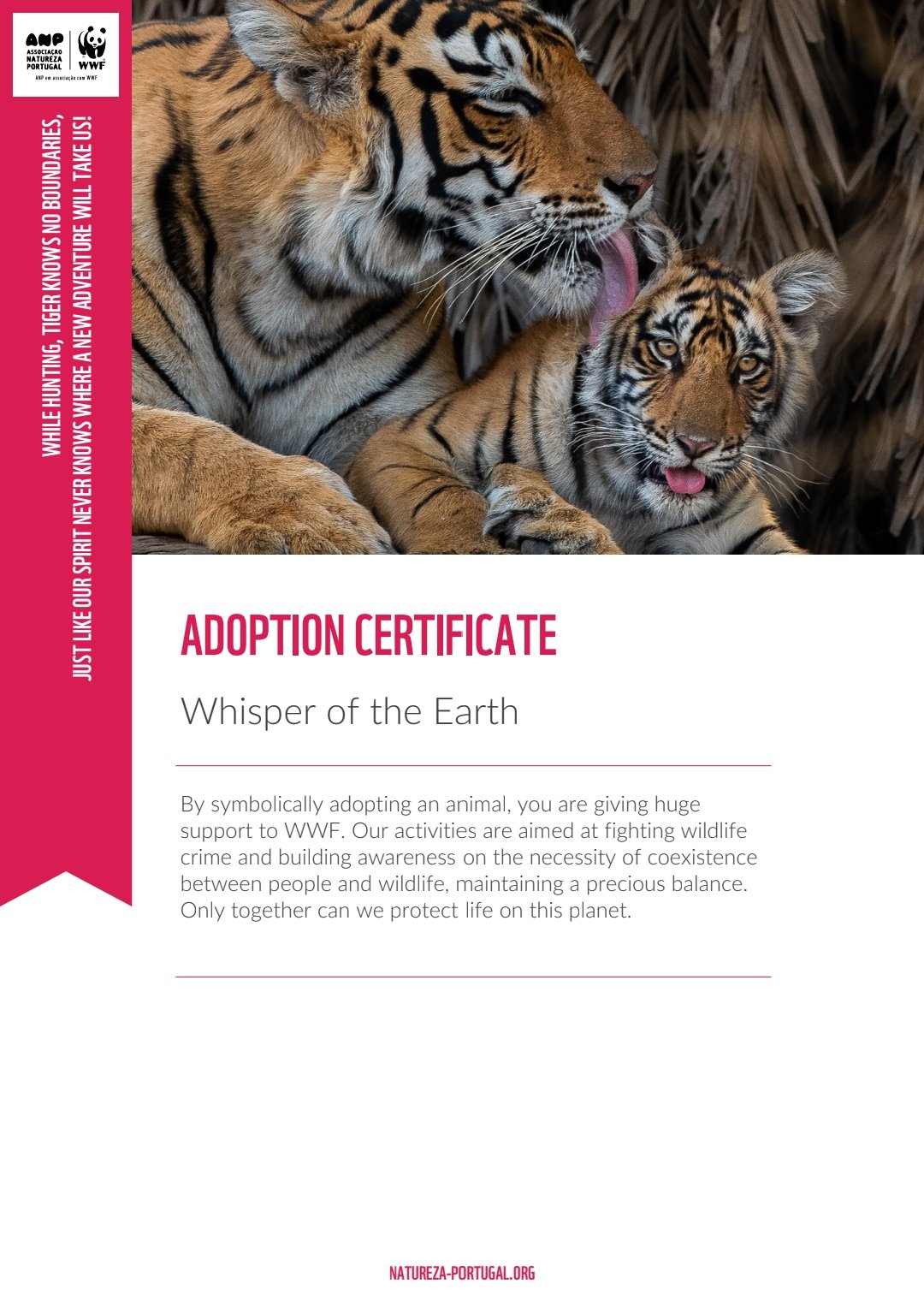
At the forefront of global conservation efforts, the World Wildlife Fund (WWF) orchestrates many projects dedicated to the survival of Earth’s wildlife. Among the array of initiatives, Whisper of the Earth contributes to conserving two magnificent predators – the Tiger and the Iberian Wolf – which stand out as critical to preserving our planet’s biodiversity.
With fewer than 6,000 wild tigers left globally, the need for concerted conservation action has never been more pressing. WWF spearheads efforts to ensure these regal cats continue to stride through the forests of Asia. Through the symbolic adoption of tigers and supporting WWF, we’re directly contributing to the fight against poaching and habitat destruction, while fostering community initiatives that enable humans and tigers to coexist.
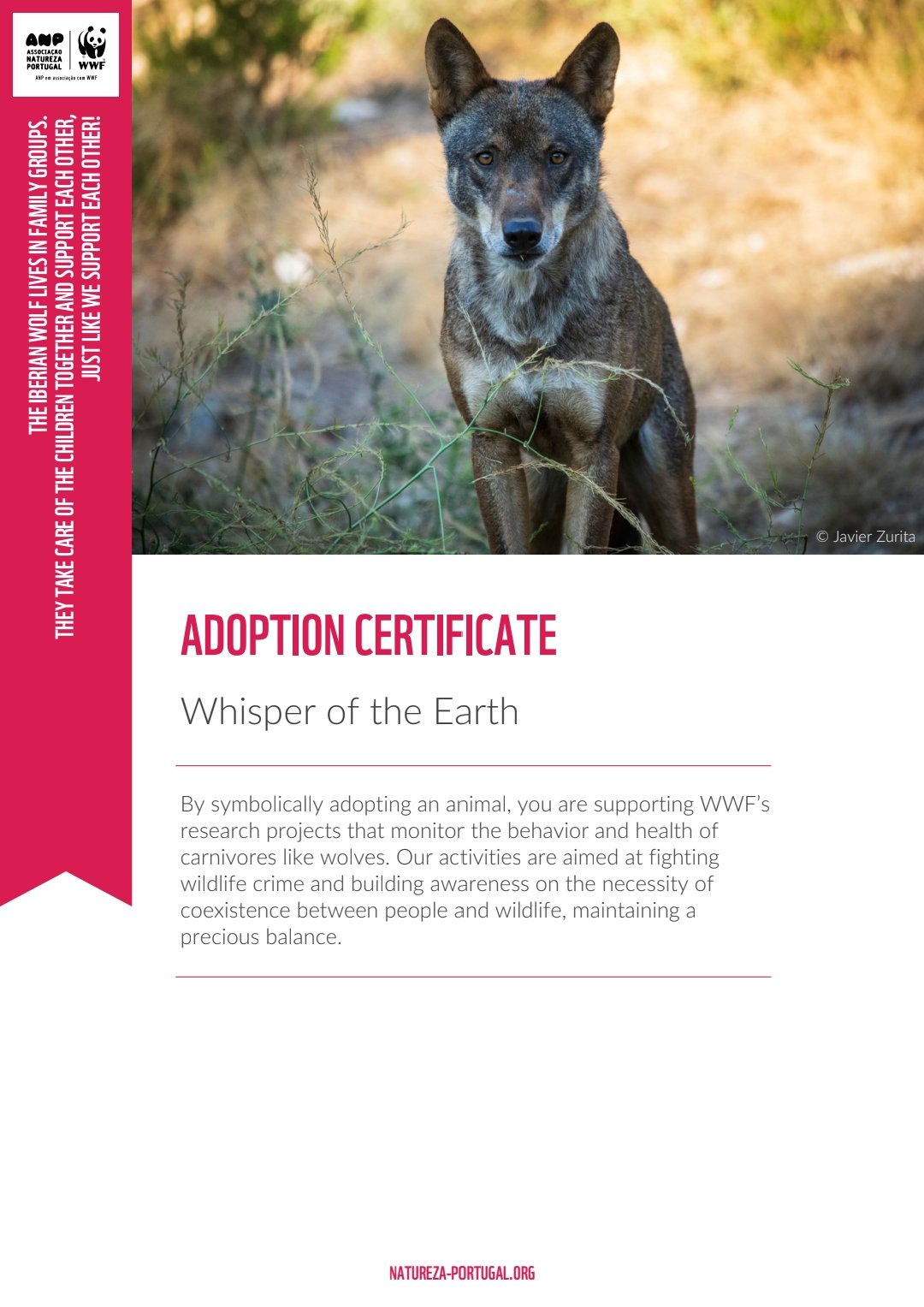
The Iberian Wolf, the largest wild canid roaming the landscapes of the Iberian Peninsula, faces a dire struggle for survival. Threatened by habitat destruction and fragmentation, these wolves suffer from reduced prey availability and the perils of direct human persecution. As the region classifies them as “endangered” in Portugal, the call to action for their protection is urgent and pressing.
Discover more about these critical WWF-led conservation efforts and how they’re making a difference: Link to the tiger conservation project | Link to the Iberian wolf recovery project
3. Oceana’s marine wildlife conservation projects
Oceana is dedicated to protecting and revitalizing the world’s oceans, which are vital to biodiversity and human life. The organization combats overfishing, habitat destruction, and pollution through science-based policies in crucial coastal countries. With over 300 victories, Oceana’s campaigns are effectively restoring ocean health and abundance. Their work not only combats climate change but also supports sustainable livelihoods and provides a healthy seafood meal for over a billion people daily.
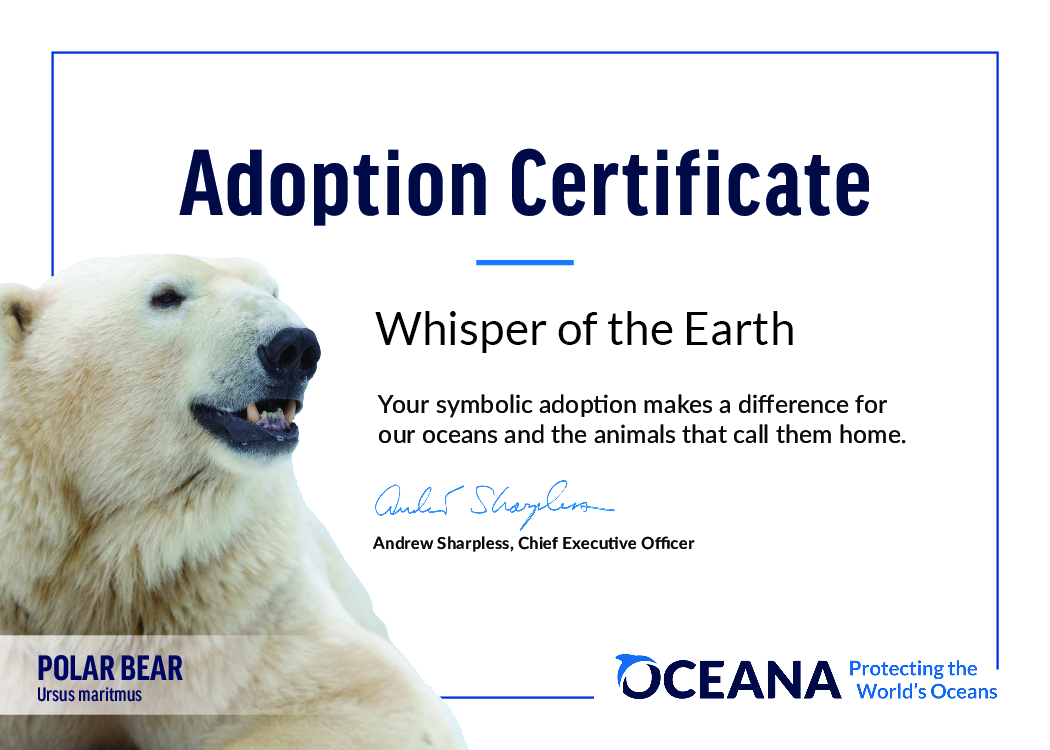
Polar bears are marvels of evolution, uniquely adapted to thrive in the Arctic with features like webbed toes and dense fur that traps sunlight for warmth. However, these majestic creatures face a dire threat from climate change. As temperatures rise and ice melts prematurely, polar bears struggle to find food, leading to starvation. Supporting Oceana’s work through symbolic adoption fuels campaigns that address climate change and work to preserve critical habitats. Each donation helps ensure that polar bears can continue to roam the Arctic ice.
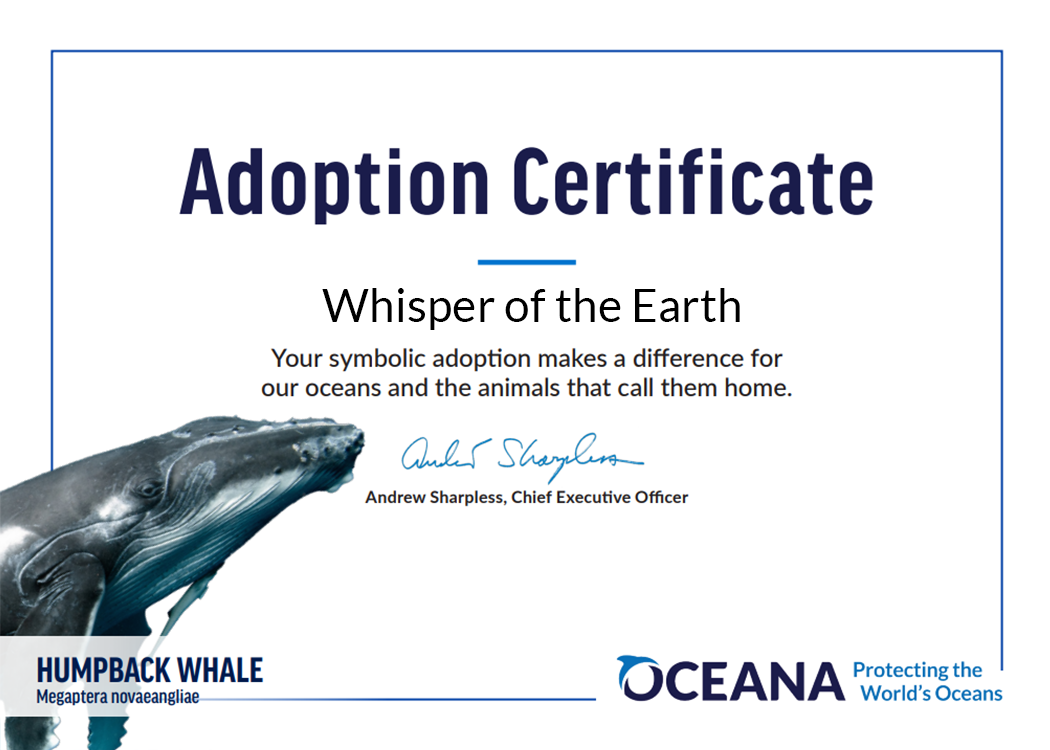
Humpback whales, known for their impressive migrations and distinctive hump-shaped dorsal fins, still bear the scars of historical commercial whaling. Today, while they no longer face threats from hunting, dangers like entanglement in fishing gear and collisions with vessels pose significant risks. Your symbolic adoption contributes to Oceana’s ongoing efforts to reduce these threats. The funds aid in advancing solutions to prevent entanglements and minimize boat strikes, protecting these magnificent travelers of the oceans.
Discover more about these critical conservation efforts and how you can help. Visit Oceana’s website to explore detailed information on the polar bear, humpback whale, other projects and different ways you can contribute to the protection of our oceans’ magnificent creatures. Your support can make a profound impact on the future of these species and the health of marine ecosystems worldwide.
4. Project Biodiversity (Projeto Biodiversidade)
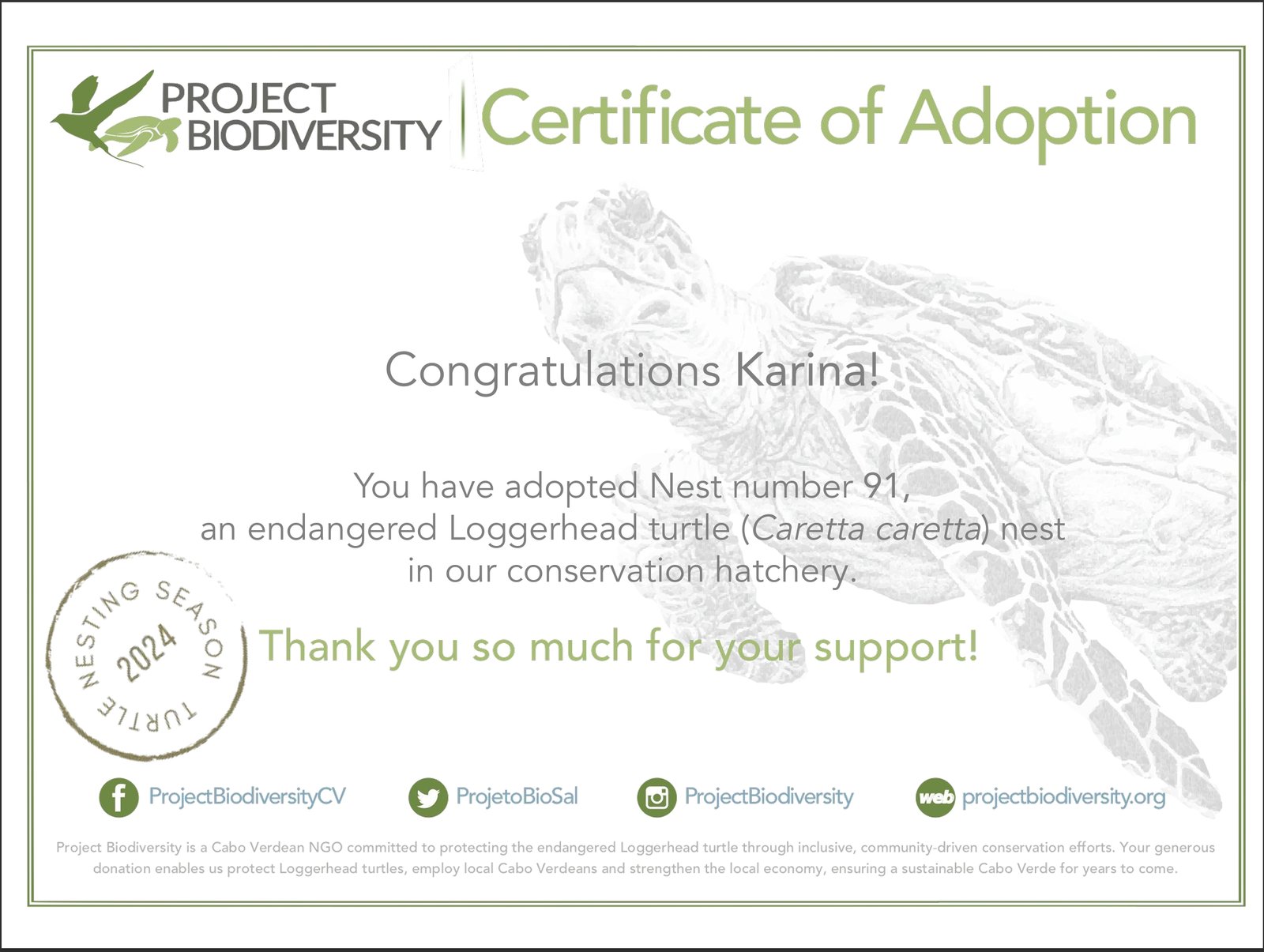
Whisper of the Earth is proud to support Project Biodiversity, a dedicated non-profit organization based in Sal, Cabo Verde, that is deeply committed to conserving the unique wildlife of the region through community-driven environmental protection initiatives.
Project Biodiversity passionately advocates for the well-being of local ecosystems by developing and implementing sustainable environmental projects. These initiatives not only protect biodiversity but also inspire individuals to nurture the natural world around them.
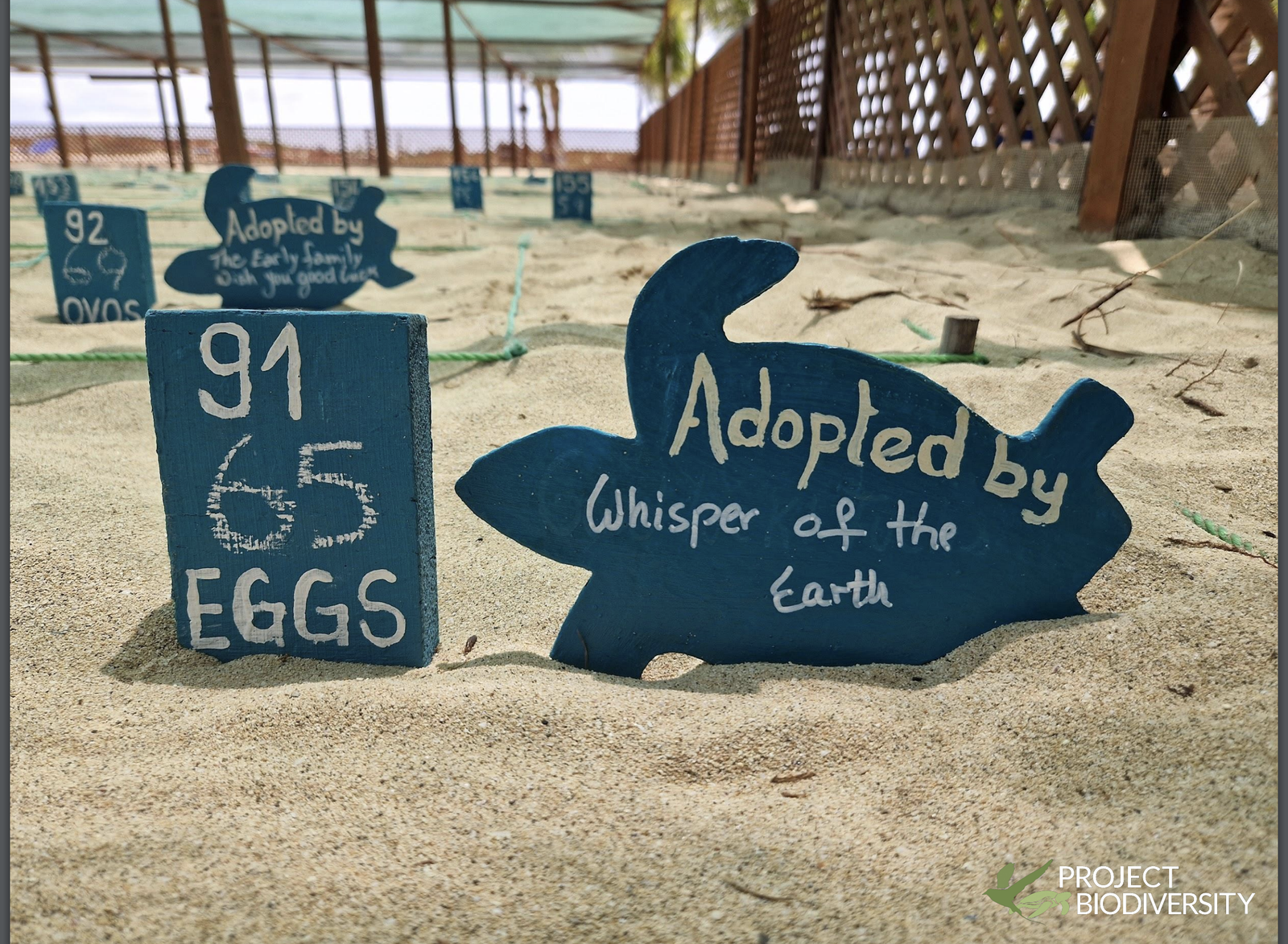
Central to the efforts of Project Biodiversity is the conservation of the Loggerhead sea turtle, an endangered marine species that finds a safe haven on the shores of Sal. From June to October, the beaches of Sal become critical nesting grounds for these turtles. In Cabo Verde, the Loggerhead is more than just a sea creature; it is a symbol of environmental and cultural identity, represented in everything from local art to the national currency. Each nesting season, collaborative team of local rangers, field biologists, and dedicated volunteers works diligently to shield these majestic creatures from poaching and other human threats. Despite ongoing challenges, our united efforts continue to make a significant impact, ensuring the survival and prosperity of the Loggerhead turtles in Cabo Verde.
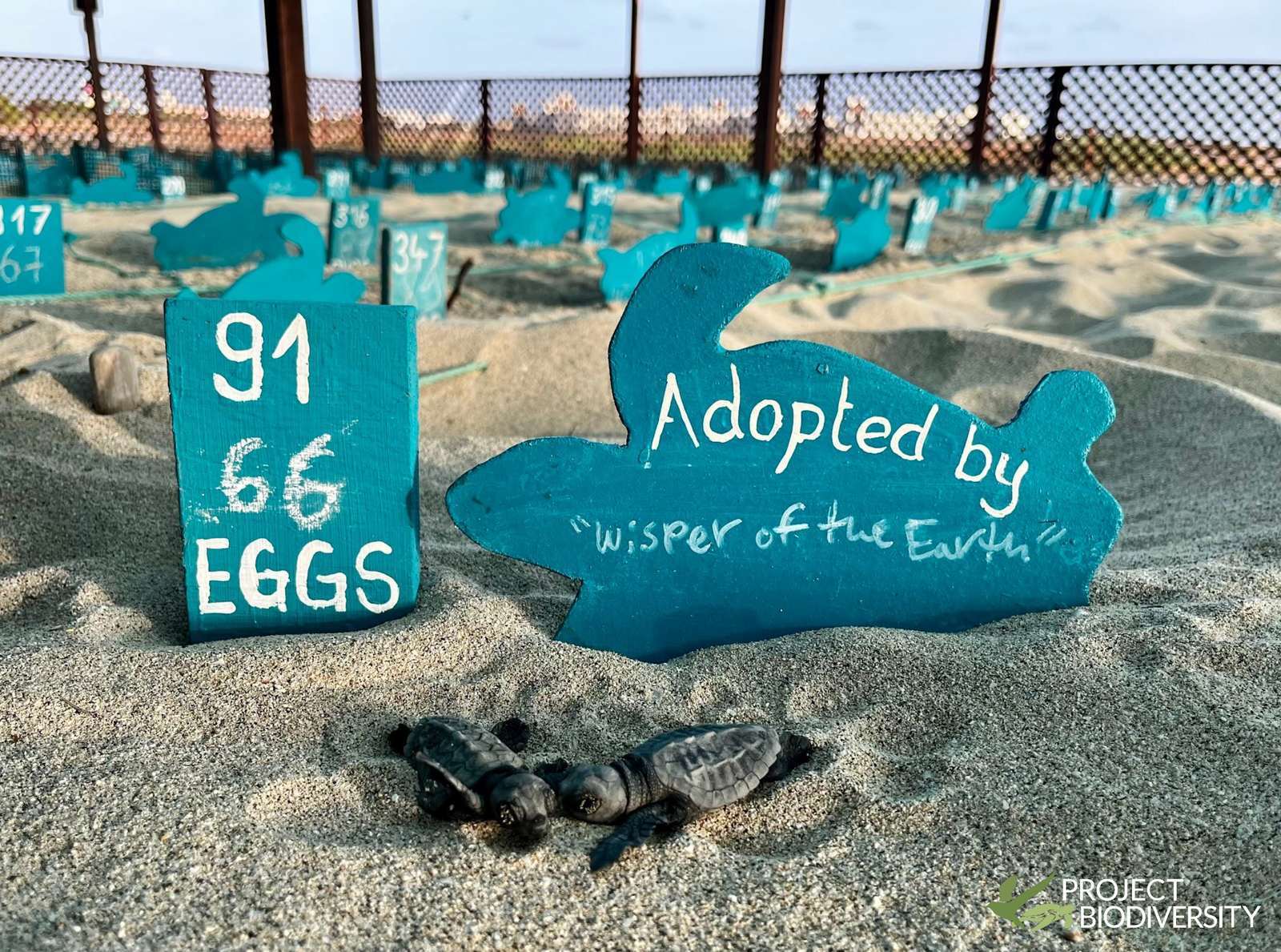
Join us in supporting Project Biodiversity as we strive to create a sustainable future for the wildlife and communities of Sal. Your support can make a profound difference in preserving the natural beauty and biodiversity of this unique region.
*Photo from Pexel.com

